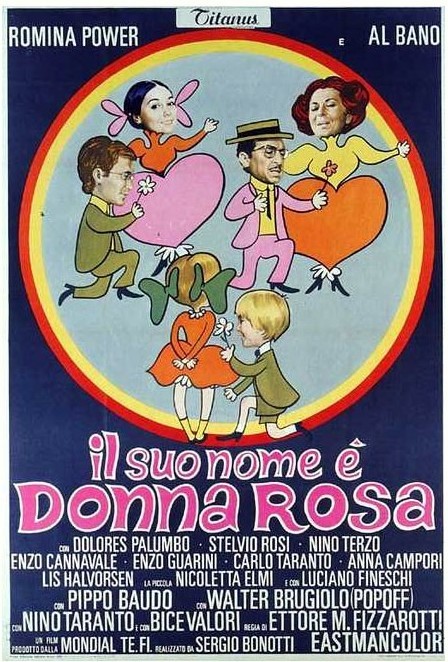Love in the shadow of Mt. Vesuvius for the royal couple of Italian love songs
This time out, the royal couple of Italian love songs bring their hopes and pains into the shadow of Mt. Vesuvius. Al Bano is a penniless boatman. Romina appears destined to marry the son of Countess Donna Rosa De Barberis. The two stars have nothing in common, apart from their love for each other. Sound familiar? Of course it does, but if you’re looking for previously unseen narratives and emotions, you must look elsewhere. What’s more, classic Neapolitan songs such as Anema e core and ‘O sole mio certainly aren’t new releases either: and yet, when sung by the magnificent voice of Al Bano, they fill your heart with refreshed emotions. Different and altogether more delicate sounds are reserved for Romina, who sings, amongst other things, Acqua di mare, the song that saw her win the young category of the 1969 Festivalbar song contest. Instead, the cheerful tune from which the film takes its name was one of the theme songs of the TV programme Settevoci hosted by Pippo Baudo (who co-wrote the song and briefly appears in the film). It is sung by Nino Taranto, who also guarantees the necessary comedic verve.
Andrea is a poor Neapolitan boatman. Rosetta is still at school. They fall in love. But the girl’s father wants her to marry the son of a countess. Who will she choose?
Love in the shadow of Mt. Vesuvius for the royal couple of Italian love songs
This time out, the royal couple of Italian love songs bring their hopes and pains into the shadow of Mt. Vesuvius. Al Bano is a penniless boatman. Romina appears destined to marry the son of Countess Donna Rosa De Barberis. The two stars have nothing in common, apart from their love for each other. Sound familiar? Of course it does, but if you’re looking for previously unseen narratives and emotions, you must look elsewhere. What’s more, classic Neapolitan songs such as Anema e core and ‘O sole mio certainly aren’t new releases either: and yet, when sung by the magnificent voice of Al Bano, they fill your heart with refreshed emotions. Different and altogether more delicate sounds are reserved for Romina, who sings, amongst other things, Acqua di mare, the song that saw her win the young category of the 1969 Festivalbar song contest. Instead, the cheerful tune from which the film takes its name was one of the theme songs of the TV programme Settevoci hosted by Pippo Baudo (who co-wrote the song and briefly appears in the film). It is sung by Nino Taranto, who also guarantees the necessary comedic verve.
Andrea is a poor Neapolitan boatman. Rosetta is still at school. They fall in love. But the girl’s father wants her to marry the son of a countess. Who will she choose?

